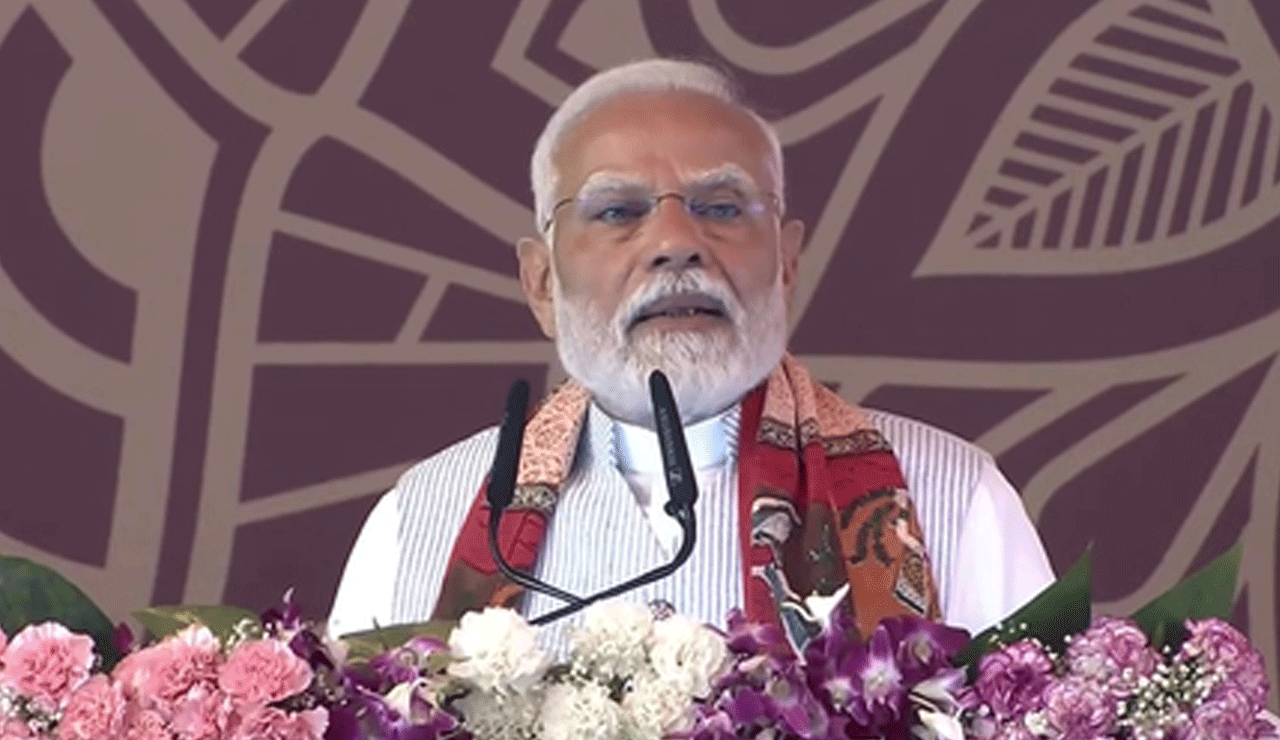PM Modi Defends Waqf Amendment Act, Slams Congress for “Votebank ka Virus”
Prime Minister Narendra Modi on Monday launched a sharp attack on the Congress party for opposing the Waqf Amendment Act, accusing it of spreading what he termed as the "votebank ka virus".

Haryana: Prime Minister Narendra Modi on Monday launched a sharp attack on the Congress party for opposing the Waqf Amendment Act, accusing it of spreading what he termed as the “votebank ka virus“. Speaking at a rally in Hisar, Modi defended the legislation as a move to protect the rights of the poor and Pasmanda Muslims, while stopping the misuse of Waqf land.
Table of Contents
PM Modi: “Waqf Land Meant for Poor Was Looted”
The Prime Minister alleged that vast tracts of Waqf land, which should have benefited underprivileged communities, especially Pasmanda Muslims, had instead fallen into the hands of land mafias.
“There are lakhs of hectares of land in the name of Waqf. This land should have benefited the poor… but land mafias ended up taking control,” Modi said.
Also Read: Ambedkar’s Vision Made Telangana Possible: KCR Pays Heartfelt Tribute
New Waqf Law to Protect Adivasi and Minority Rights
Modi highlighted that the amended Waqf Act will prevent the Waqf Board from claiming or using Adivasi land.
“Under the new Waqf law, land or property belonging to any Adivasi cannot be touched by the Waqf Board,” he said, framing the law as a measure of real social justice.
“Congress Only Interested in Vote Bank Politics”: PM
Modi accused the Congress of politicizing the issue for electoral gain, stating:
“Congress is not thinking about the welfare of Muslims or the poor. They are only focused on preserving their votebank.”
Background: Waqf Amendment Act Sparks Nationwide Debate
The Waqf Amendment Act has triggered widespread protests and debates across India. While the BJP-led central government claims the law ensures transparency and safeguards rightful land ownership, opposition parties and some Muslim organizations have alleged that the amendment is unconstitutional and discriminatory.
